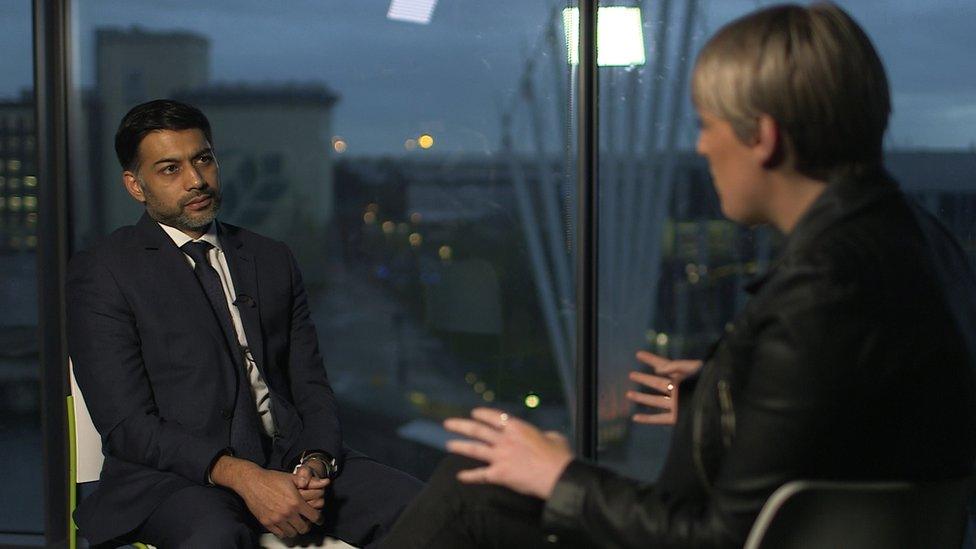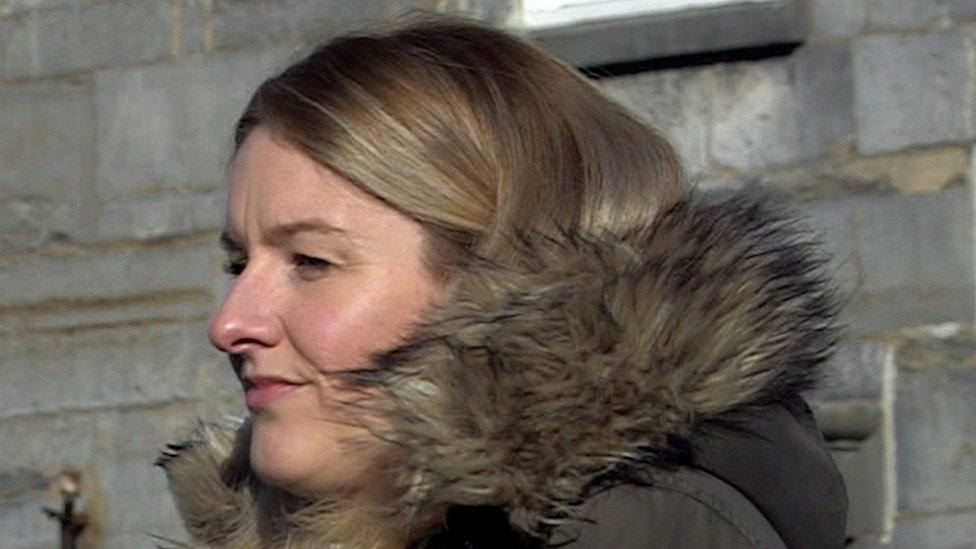'I had £20,000 stolen while unconscious'
- Published

Arthur had received the money as part of an inheritance
A NatWest customer who was defrauded of £20,000 while he was in hospital following a violent mugging in December 2017 has been refunded by the bank.
The man, who was then 19, was found unconscious in a London park by a dog walker after being attacked and robbed.
When he came round in hospital 12 hours later, thieves had spent about £20,000 on his stolen debit card, but NatWest refused to refund him.
After BBC Watchdog Live investigated, the bank reversed its decision.
It also apologised for a "lack of clarity" in its original ruling.
The customer, Arthur, has requested his surname is not made public to protect his privacy.
He told the programme's presenter, Steph McGovern: "It's destroyed my life. It's made me feel like I am the criminal and I feel I have been accused of fraud.
"I ended up in hospital. I could very easily have died that night - why would I put myself through that?"
The money stolen was part of an inheritance that had been deposited into his NatWest account earlier in 2017.
Arthur protested his innocence for a year as the bank continued to refuse his fraud claim.
The programme's investigation found that NatWest provided no evidence to show Arthur was grossly negligent, as is required under Payment Services Regulations when fraud claims are turned down.
Arun Chauhan, a lawyer and member of the Fraud Advisory Panel, said the rules were clear and Arthur should always have been refunded the amount lost.
He told the programme: "It's not for Arthur to prove his innocence - it's for the banks to prove Arthur is in the wrong.
"They accept he's been assaulted and they accept the transactions were by a third party, so unless they can prove gross negligence, or fraud on Arthur's behalf, he needs to be compensated."

Arun Chauhan tells Steph McGovern banks have to prove customers are in the wrong in fraud cases like this one
Arthur says he has few memories of the attack, but guesses the perpetrators may have spied on him to obtain his Pin number prior to the robbery and opened his phone using his fingerprint while he was knocked out.
An ambulance report confirms he was found lying unconscious in a park with blood on his face at about 09:30 on the day of the attack, and was taken to hospital.
His bank statements show multiple purchases on the stolen debit card at stores across the capital that day, including £8,300 in a single transaction at a designer clothing store.
An initial decision letter from NatWest in December 2017 stated Arthur's claim for a refund was turned down "in line with our policy" and gave notice it would be closing his account.
The bank subsequently told Arthur there were "inconsistencies" in his testimony, but did not disclose specific details.
'Complex'
NatWest reversed its decision this week, after being contacted by Watchdog.
In a statement, NatWest's parent company RBS said: "We would like to offer our apologies to Arthur for the distress that he has experienced as a result of the attack on him and the subsequent events that followed.
"We treat all claims of fraud with the utmost seriousness and investigate them on a case-by-case basis to ensure a fair outcome for the customer.
"The case raised by Arthur was a complex one and there existed a number of inconsistencies between the version of events presented to us by him and following our own internal investigation.
"Following a further review of the case, we have taken the decision to refund Arthur in full and would like to apologise for any lack of clarity presented to him regarding our initial decision."
The Financial Ombudsman Service, which resolves financial services complaints, told banks earlier this year to stop "automatically" blaming their customers for fraud.
Last month, Watchdog featured the case of Charlotte Higman, who was blamed by RBS for a £4,300 telephone banking scam, which was refunded after the programme's investigation showed fraudsters answered security questions wrongly.
Bank accounts are the most targeted product for fraudsters, with 100,000 cases recorded last year., external
You can watch Watchdog Live's full report on BBC One on Wednesday 5 December at 20:00 GMT, and afterwards on iPlayer.
- Published21 November 2018
